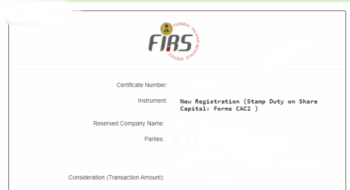Introduction
As cryptocurrencies continue to gain widespread adoption across the world, the landscape is becoming more appealing for more investors and traders to join the bandwagon on a daily basis, including Nigerian traders and investors. Being the giant of Africa in terms of land mass, economy size, as well as population, cryptocurrency investment is undoubtedly on the increase in Nigeria and other parts of Africa.
A 2022 research ranked Nigeria as the top country for crypto ownership and usage. The report claimed that over 45% of Nigeria’s youthful population were involved in one form of crypto transaction or the other. The Nigerian government has defined cryptocurrency as a digital or virtual currency. It’s no surprise that the Nigerian government has taken steps to regulate the usage and ownership of cryptocurrencies, as well as mull ideas to start taxing transactions involving cryptocurrencies.
The usual crypto taxation includes crypto income taxes, airdrop taxes, staking taxes, capital gains/losses taxes, hard fork taxes, and mining taxes.

Here, we provide an overview of the basics of crypto taxation in Nigeria. This article will examine how the Nigerian government through its tax agency known as the FIRS (Federal Inland Revenue Service) treats cryptocurrency and the penalties for not complying with tax regulations.
Nigerian Crypto Tax Situation
The Nigerian government through the FIRS considers cryptocurrency as taxable asset. The FIRS is the government agency saddled with the responsibility of administering the tax regime in the country. The agency has guidelines that Nigerian taxpayers must comply with; otherwise, penalties may be imposed on defaulters.
Cryptocurrencies are classified as assets in Nigeria, and individuals and companies are liable to pay capital gains tax (CGT) on any profits or losses incurred through trading or investing in them. The CGT rate is 10% for individuals and 20% for companies.

In Nigeria, various activities involving crypto assets are subject to taxation. These activities encompass the purchase or sale of cryptocurrencies, the exchange of cryptocurrencies for other digital assets, and the utilization of cryptocurrencies for the acquisition of goods or services.
Furthermore, income derived from cryptocurrency mining is also subject to taxation in Nigeria. Any earnings obtained through mining operations are liable to income tax.
Individuals engaged in cryptocurrency trading and investment within Nigeria have an obligation to disclose their crypto-related activities to the Nigerian tax authorities and fulfill their tax obligations accordingly. Neglecting to comply with these requirements may lead to penalties or legal consequences
How The FIRS Tracks Crypto Transactions
The FIRS doesn’t have a formal approach to tracking crypto usage and ownership in Nigeria. However, they rely on individual crypto users to self-report their involvement in cryptocurrencies for tax purposes. This can pose a challenge to the agency, as some crypto users may use that as a basis to default in tax payments when they dispose of their cryptocurrencies.
In a bid to tighten up lose ends in its crypto tax guidelines, the FIRS is collaborating with international agencies to identify and clamp down on tax defaulters. In fact, it’s now a requirement for crypto exchanges operating in the country to implement the Know Your Customer (KYC) policy. Crypto exchanges are also expected to implement different anti-money laundry measures in a bid to track down crypto-related transactions.
In addition, the Federal Inland Revenue Service (FIRS) has the authority to oversee bank transactions associated with cryptocurrency trading and investment endeavors. Nigerian banks have an obligation to notify the Central Bank of Nigeria (CBN) about any transactions that involve cryptocurrencies.
To monitor crypto transactions, recognize trends, and uncover potential instances of tax evasion or fraudulent activities, the FIRS can employ advanced data analytics tools and algorithms.
Penalties For Not Complying With Tax Regulations Nigeria
Under the Nigerian tax laws as prescribed by the Nigerian parliament, failure to self-report your involvement in cryptocurrencies for tax purposes can result in heavy penalties. Put better, any Nigerian crypto trader or investor that does not declare their profit/loss in crypto transactions is liable to face fines, criminal charges, or interest on unpaid taxes.
It’s important to stay updated as a Nigerian crypto trader even as the government continues to close identified gaps in the nation’s tax regulations. Staying abreast of the happenings in the country and using a crypto tax software ensures that you are compliant with tax laws and avoid earning a strike from the FIRS for defaulting on tax liability.
In the event of a taxpayer’s failure to promptly pay their taxes, a penalty of 1% per month or fraction of a month may be imposed for the duration that the tax remains unpaid.
Conclusion
Nigeria is one of the leading countries involved in cryptocurrencies behind the United States, India, and Pakistan. The Federal Inland Revenue Service (FIRS) is the agency saddled with the responsibility of administering the tax regime in the country. The Nigerian government through the FIRS has taken steps to ensure that crypto traders and investors pay appropriate taxes for their involvement in cryptocurrencies.
As the Nigerian crypto market continues to grow, it’s essential for you to understand your tax obligations and endeavor to stay compliant so that you don’t attract the attention of the FIRS.
